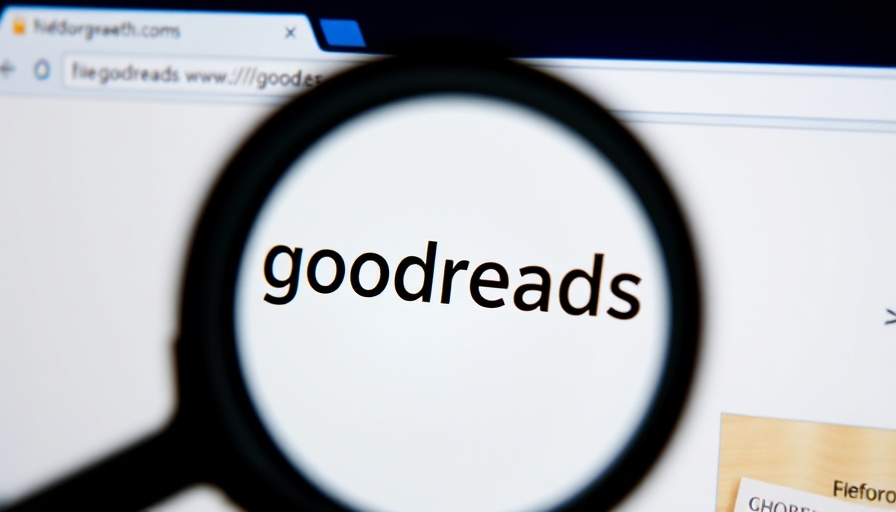
Goodreads Under Fire: A Platform in Crisis
Goodreads, the popular reading community where book lovers share reviews and recommendations, finds itself facing escalating backlash from authors who feel the platform has become a battleground for trolls and abusive reviewers. Recently, numerous authors have voiced their frustrations over homophobic comments and targeted attacks, particularly against LGBTQ+ literature, highlighting a pervasive culture of hostility.
A Landscape of Criticism
Several prominent authors have raised their concerns in social media posts and public statements, pointing out that Goodreads’ current moderation policies fail to adequately protect authors and their works from hostile reviews that often contain personal attacks rather than constructive feedback. In an environment where reviews can significantly influence reader decisions, the prevalence of negativity prompts serious discussions about the responsibilities of digital platforms in fostering a respectful community.
The Impact of Troll Culture
As the conversation around online harassment continues to grow, authors emphasize the long-term effects of trolling on their mental health and the narratives that are pushed to the margins. Specific incidents illustrate how toxic reviews can discourage an author’s future work and, in some cases, even trigger them to withdraw from public engagement entirely. Critics argue that the need for robust community standards is more urgent than ever, especially within spaces dedicated to creative expression.
Historical Context: The Evolution of Book Reviews Online
Looking back over the past two decades, the rise of online platforms changed the way books are discussed and critiqued. Initially designed to democratize literary discourse, these platforms now find themselves navigating the difficult waters of free speech versus safety. As the landscape evolves, authors and readers alike are calling into question whether Goodreads can reclaim its original intent as a supportive space for discovering and sharing literature.
The Human Element: Stories of Resilience
Not only does this issue highlight a critical segment of the literary world but it also intersects with deeper societal themes. Authors who share their stories of resilience, often set against the backdrop of difficult histories—like World War II intrigue and Nazi-occupied France—demonstrate how literature can serve as a vehicle for healing and connection. The significance of strong female protagonists undertaking journeys of courage in historical fiction, especially in contexts where secrets and betrayals linger, resonates with a broad audience.
A Call for Change: What Can Be Done?
If the literary community hopes to foster healthy discussions around books and their themes, including those featuring strong representation, changes must be made within platforms like Goodreads. Enhanced community guidelines, clearer reporting mechanisms, and proactive moderation could significantly improve user experience while ensuring that important voices are not drowned out by harmful narratives.
A Look Ahead: Future Predictions for Online Book Communities
Going forward, a communal shift is required—one that prioritizes emotional safety while encouraging diverse voices. The book community is poised at a pivotal juncture, where the future of digital engagement hinges on balancing the freedom to express opinions while fostering respect and diversity. As literary enthusiasts navigate the murky waters of online discourse, addressing these challenges will be crucial.
As readers and supporters of literature, we can advocate for increased awareness about the impact of digital reviews and support authors whose voices add richness to our reading experiences.
If you enjoy gripping historical fiction that explores resilience through intricate plots and strong characters, check out The Call of the Blackbird by Nancy Polk Hall. Join the journey of exploring hidden truths and the heroics of a past that won’t stay buried!
 Add Row
Add Row  Add
Add 




Write A Comment